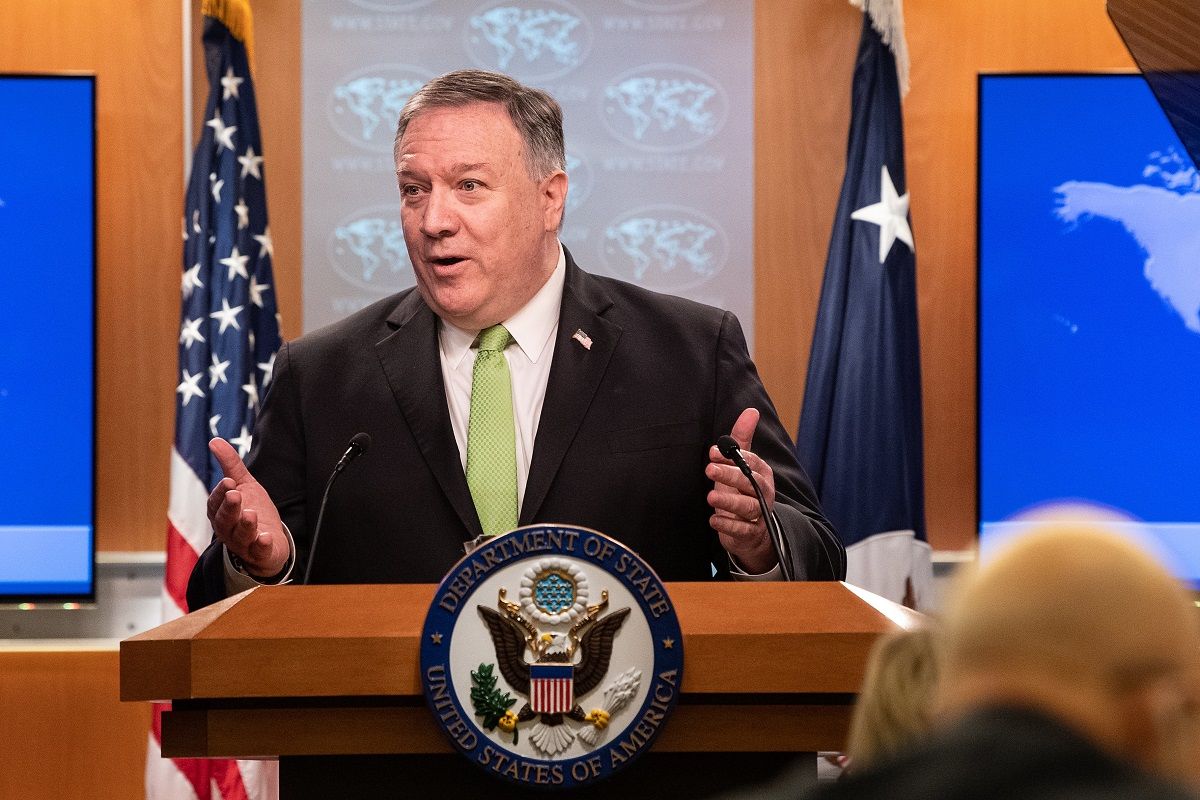US Secretary of State Mike Pompeo on Tuesday announced visa restrictions for some Chinese officials under the Reciprocal Access to Tibet Act of 2018.
“Today I announced visa restrictions on PRC (Peoples Republic of China) officials involved in restricting foreigners’ access to Tibet. We will continue to seek reciprocity in our relationship,” Pompeo said in a tweet.
Advertisement
In a statement, he said that access to Tibetan areas is increasingly vital to regional stability, given the PRC’s human rights abuses there, as well as Beijing’s failure to prevent environmental degradation near the headwaters of Asia’s major rivers.
Beijing has continued systematically to obstruct travel to the Tibetan Autonomous Region (TAR) and other Tibetan areas by US diplomats and other officials, journalists, and tourists, while Chinese officials and other citizens enjoy far greater access to the United States, he said.
As such, Pompeo said he is announcing visa restrictions on Chinese government and Chinese Communist Party officials determined to be “substantially involved in the formulation or execution of policies related to access for foreigners to Tibetan areas,” pursuant to the Reciprocal Access to Tibet Act of 2018.
Pompeo further said the US will continue to work to advance the sustainable economic development, environmental conservation, and humanitarian conditions of Tibetan communities within China and abroad.
“We also remain committed to supporting meaningful autonomy for Tibetans, respect for their fundamental and unalienable human rights, and the preservation of their unique religious, cultural, and linguistic identity. In the spirit of true reciprocity, we will work closely with the US Congress to ensure US citizens have full access to all areas of the People’s Republic of China, including the TAR and other Tibetan areas,” he said.
The State Department funding for the Tibetan issues for the fiscal year 2021 beginning October 1 has been proposed to be USD17 million and USD1 million for the Special Coordinator for Tibetan Issues, according to the budget papers which is now making its way through the Congressional approval process.
Meanwhile, as the world commemorated the 85th birthday of the Tibetan spiritual leader, the Dalai Lama on July 6, the US thanked India for hosting him since 1959. The Dalai Lama has been living in India ever since he fled Tibet following a Chinese invasion.
The Tibetan government-in-exile operates from Dharamsala in Himachal Pradesh. Over 1,60,000 Tibetans live in India.
“Happy 85th birthday to His Holiness @DalaiLama, who has inspired the world through his peace & kindness, and as a symbol of the struggle for Tibetans and their heritage. We thank India for hosting His Holiness and Tibetans in freedom since 1959 & wish His Holiness happiness,” the US State Department’s South and Central Asian Affairs (SCA) bureau tweeted on Monday.
Last month, the United States had said that it was restricting visas for a number of Chinese officials, accusing them of infringing on the autonomy of Hong Kong.
Secretary of State Mike Pompeo said the United States would restrict visas for unspecified current and former officials of the Chinese Communist Party “who were responsible for eviscerating Hong Kong’s freedoms.”
Pompeo further added that the officials who were targeted were “responsible for, or complicit in, undermining Hong Kong’s high degree of autonomy,” which Beijing promised before regaining control of the territory in 1997″.
Pompeo’s action came a day after the US Senate approved a bill that would lay out economic sanctions against Chinese officials and Hong Kong police as well as banks that do transactions with them.
In June, Pompeo had described China’s announcement to tighten its control over Hong Kong as “unilateral, arbitrary and disastrous.”
On May 22, China proposed a national security law for Hong Kong in response to last year’s violent pro-democracy protests that plunged the city into its deepest turmoil since it returned to Chinese rule in 1997.
The law gives China the authority to curb secession, subversion, terrorism, and foreign interference, something that was observed in pro democracy protests which gripped the city last year, according to the reports.
(With agency inputs)











